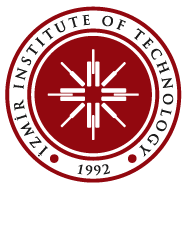Courses Offered by Barış Atakan
EE564 – Bio-Inspired Multi-Scale Communications
Diffusion and Reaction Diffusion Equations, First-passage and Occupation Probabilities, Accuracy of Concentration and Gradient Sensing, Molecular Modulation/Demodulation, Information Theoretical Approaches to MC, Detection and Estimation of Molecular Information, Ant-Colony Algorithm, Artificial Immune System Algorithm, Foraging Theory, Ant Colony-Inspired Routing Algorithm for Ad Hoc Networks, Immune System-Inspired Opportunistic Spectrum Access in Cognitive Radio Networks, Foraging Theory-Inspired Cross-Layer Communication in Wireless Sensor and Actor Networks.
EE544 – Information Theory and Coding
Information measures, characterization of information sources, coding for discrete sources. Discrete channel characterization, channel capacity, noise-channel coding theorems. Various error control coding and decoding techniques. Introduction to waveform channels and rate distortion theory.
EE352 – Communication Systems I
Building blocks of communication systems. Introduction to modulation; AM and FM modulation and demodulation; Frequency division multiplexing; Noise; Effect of noise on AM and FM; Effects of transmission losses and noise in analog communications; Carrier Phase Estimation with PLL; Source-coding theorem, Entropy, Quantization, PCM, DPCM, DM, Time division multiplexing; Pulse transmission: PAM, PDM, PWM.
EE451 – Communication Systems II
PAM, ASK,FSK,PSK, QAM, CPM, M-ary modulation techniques, Optimum receivers in AWGN: Error probabilities for Binary and M-ary modulations; Inter-symbol-Interference, equalization, eye-pattern; carrier synchronization; channel capacity; coding: linear block and convolutional codes.
EE442 – Computer Networks
Seven layered ISO-OSI model. Physical Layer: Data rate, modulation, coding. Data Link Layer: medium access sublayer, CSMA/CD. Network Layer: IPv4 and IPv6, packet routing. Transport layer : UDP, TCP, RTP, RTSP, RTCP, congestion control. Application Layer: HTTP, FTP, SMTP.
EE453 – Software-Defined Communications
Main motivation of software-defined communication, components of a digital radio, receive filtering, derivation of adaptive algorithms for automatic gain control, clock recovery, carrier recovery and equalization, channel coding schemes in software-defined communication, implementation of a complete software-defined receiver with MATLAB, an overview of RTL-SDR and processing of real data.
EE491 – Graduation Project I
EE492 – Graduation Project II
